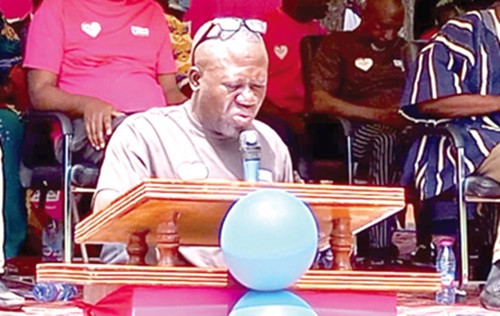The Headmaster of the Walewale Senior High Technical School in the North East Region, Reverend Ibrahim Sebiyam, has appealed for urgent support to provide female-friendly KVIP toilet facilities, changing rooms and access to potable water for female students of the school.
He expressed concern over the deplorable condition of the existing toilet facilities, which had become non-functional due to persistent water shortages.
He said the situation had compelled students, particularly females, to resort to open defecation, exposing them to several hazards.
"Girls struggle to manage their menstrual hygiene due to the lack of adequate facilities. With no proper changing rooms, they face discomfort, embarrassment and health risks.
“We are appealing for support to promote menstrual health hygiene and restore dignity for our girls," he said.
Event
Rev. Sebiyam made the appeal at an event to commemorate this year’s World Menstrual Hygiene Day, observed on the theme: “Together for a Period-Friendly Ghana.”
![]()
Organised by Plan International Ghana, the event was held under the Integrated Package for Sustainable Community Development (I-PADEV) project, which seeks to create a resilient and supportive environment for better health and education outcomes — especially for girls, through improved access to water, sanitation and hygiene and health services.
Rev. Sebiyam also raised concerns about the indiscriminate disposal of used sanitary pads, a challenge driven by the lack of designated waste facilities.
He further highlighted the acute water shortages facing the school, stating that with a population of over 2,000 students, the school depends on supply from the Community Water and Sanitation Agency (CWSA), which was unable to sustain the population.
He lamented that "due to the water situation, students often leave campus in search of water, sometimes for two to three hours. This disrupts academic activities and exposes students to unnecessary risks."
He was optimistic that the provision of a sustainable water system, alongside improved toilet and hygiene facilities, would significantly enhance menstrual health management and students’ wellbeing.
The Country Director of Plan International Ghana, Constant Tchona, acknowledged the hardship students endure due to inadequate facilities and pledged to engage the school further to explore sustainable solutions.

